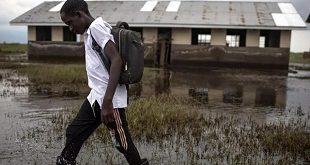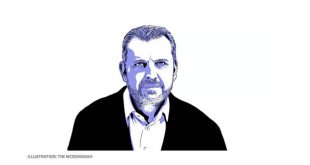All these facts show that in spite of his oversized parliament, districts, advisors and assistants, Museveni is running a very prudent fiscal regime on public sector wages. His ratios meet the best fiscal practice globally. Indeed compared to Kenya, Museveni has ensured that his political hangers-on and civil servants earn modestly. This is contrary to the claims by Besigye’s group. Indeed, this financial year, 33.5% of our nation’s total budget is devoted to roads and dams. I can claim part of this credit. In 2006/07 I worked with ACODE to campaign against the high cost of political patronage and called for funding of roads and electricity. It seems someone in government listened and acted.
If Besigye increases Uganda’s wage bill to Shs4.2 trillion that will make public sector wages 33% of next year’s projected revenue of Shs13 trillion – above the economically recommended ceiling of 30%. That is a slippery slope Kenya has fallen onto as 52% of its budget goes to pay public sector wages alone. In October, the Kenya government, with four times Uganda’s budget, had to borrow from abroad to pay its employees. Uganda has managed its fiscal regime very well. What is shocking (but not surprising) is the apparent inability of Museveni’s campaign team to defend their candidate’s record.
Yet there are better arguments to make against Museveni’s government. One of them is the very small growth in the tax to GDP ration from 11% in 1997 to 13% now. This is in spite of growth in both monetary and taxable GDP. If Uganda broadened the tax base and improved tax administration, it can collect about 18% of GDP in taxes. This would bring in an extra 3.8 trillion in revenue. What is needed to achieve this?
The other issue is growth in agriculture, which has been sluggish. Museveni is promising a return to the hoe. Should the hoe be our future or our past? Besigye is calling for increased funding of agriculture to 10% of the budget. But is government spending the missing catalyst in agriculture? Finally is industry. Without growing a manufacturing sector to export value added goods, it will be difficult (if not impossible) for Uganda to break from poverty and rampant youths unemployment. Museveni has talked big about this and done little. What are Besigye’s policy proposals on manufacturing?
Museveni’s campaign message (“steady progress”) is a call to maintain the status quo. Besigye says the status quo must change. He therefore has greater responsibility to show us his alternative vision. For now, most of his promises are of a transactional, not transformational nature. If met, it is because Museveni has grown the economy and government revenues to pay for them. Therefore Besigye should have the modesty of Isaac Newton when he said: “If I have seen far, it is because I was standing on the shoulders of giants.” If elected, President Besigye will build a greater Uganda largely because Museveni has given it a strong economic foundation.
This extended version of the last column was published in The New Vision of Monday December 7th 2015.
amwenda@independent.co.ug
 The Independent Uganda: You get the Truth we Pay the Price
The Independent Uganda: You get the Truth we Pay the Price


